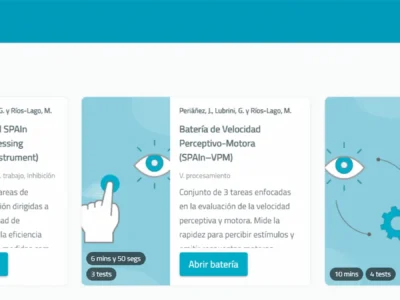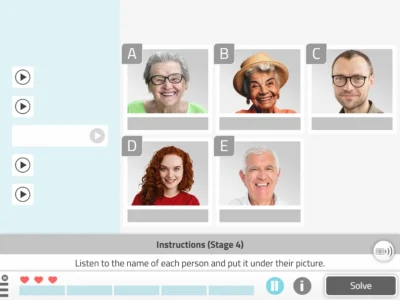Clinical neuropsychologist Carlos Alberto Serrano-Juárez presents the most effective programs to treat social cognition in schizophrenia: Affect Recognition Training, Emotion Management, and Integrated Psychological Therapy.
Schizophrenia is an severe mental disorder in which people interpret reality abnormally. Schizophrenia can cause a combination of hallucinations, delusions and severe disturbances in thought and behavior, which affects daily functioning and can be disabling.
People with schizophrenia need lifelong treatment. Early treatment can help control symptoms before more serious complications develop and can improve long-term prognosis.
Programs for the treatment of social cognition in schizophrenia
Over the past years, multiple programs have been developed to treat deficits in social cognition that commonly occur in schizophrenia and that have been scientifically validated. In this first article related to this topic, some of them will be examined.
Affect Recognition Training
According to Durá et al. (2008) Affect Recognition Training (TAR) (Frommann et al., 2003; Wölwer et al., 2005) is a standardized and computerized training for the recognition of facial expression.
The program comprises 3 blocks with 4 sessions per block, with a session duration of approximately 45 minutes and a total of 12 sessions. It is conducted in pairs of patients with the guidance of the psychotherapist. The tasks presented have increasing difficulty:
- In the first block patients learn to identify and discriminate, as well as to verbalize the main facial signs of the 6 basic emotions. The question asked is “What affect does this person express?”.
- In the second block, the aim is to integrate this detailed view of affect into an increasingly global mode of processing, based on first impressions, non-verbal processing and the processing of low-intensity facial expressions. The task to be performed is “Classify the photos according to the intensity of facial affect”.
- The third block comprises, on the one hand, the processing of non-prototypical and ambiguous affective expressions, which often occur in daily life and, on the other hand, the integration of facial expressions into the social, behavioral and situational context. An example of a task requested here is to answer the question “Which of these people has just received flowers and is thinking: how pretty they are?”.
Throughout the program a set of replacement strategies (repetition, errorless learning, instant feedback) and compensation strategies (feature abstraction, verbalization, self-instructions) are used. The main compensatory strategy is the verbalization of the facial expression in terms of elemental gestures.
In a recent study Vaskinn et al. (2019) found that affect recognition training provides evidence of beneficial effects that are generalizable and persist over time, but they also highlight the need for additional treatment to address social cognition in schizophrenia and thus achieve benefits on psychosocial functioning.

Subscribe
to our
Newsletter
Emotion Management Training
According to Ruiz et al. (2006) Emotion Management Training (EMT; Hodel et al., 1998) is a program that assesses deficits in emotion perception, as well as the consequences of these on social adjustment and psychopathology.
It is administered in small groups in three steps:
- In the first step, deficits in emotion perception are addressed by step-by-step assessment of one’s own and others’ expression.
- In the second step, poor social adjustment is addressed by recalling the coping strategies currently used.
- Lastly, in the third step, both social adjustment and low stress tolerance, are improved through the person’s acquisition of effective coping strategies.
Participants are trained to achieve the program objectives using behavioral interventions such as role-play or in vivo exercises
Integrated Psychological Therapy
In addition to a first module called Cognitive Differentiation, it also includes four other modules aimed at addressing the treatment of social cognition in schizophrenia and the improvement of interpersonal skills.
These modules consist of the following:
- Social Perception: Aims to improve the patient’s perceptual and interpretative capacity in social situations and will be explained in more depth later.
- Verbal Communication: Its main objective is to stimulate exchange and social communication among group members.
- Social Skills: This module is aimed at improving individuals’ interpersonal performance. Its working methodology does not differ from the traditional intervention procedures already designed in this area.
- Interpersonal Problem Solving: Problematic situations contributed by participants are addressed openly and flexibly. Work focuses on discussion and analysis of these situations, incorporating the possibility of using role-play to shape the appropriate response to the situation.
The Social Perception Module
According to Ruiz et al. (2006) of the five modules, the second, called Social Perception, is the most closely related to social cognition, since it is one of its components. It uses 40 slides that represent different social situations. They vary in terms of degree of cognitive complexity and the emotional load of the content. At first the less complex slides are worked on, which usually present emotionally neutral content and, as therapy progresses, more complex and emotionally laden slides are addressed.
The module is divided into three phases:
- In the first phase, called information gathering from the slide, participants are asked to describe the elements present in the projected image. Some of the tasks consist of: focusing, addressing relevant contents of the image, drawing attention to what was forgotten and summarizing.
- In the second phase called interpretation and discussion of the slide, participants provide an explanation of the slide’s contents. Each opinion must be justified with reference to the visual information gathered in the first stage. Then there is a debate about which interpretation seems most appropriate or most probable. The tasks, therefore, consist of: interpreting, justifying the interpretation and debating in the group.
- Finally, in the third phase called title assignment, each participant provides a short title that summarizes the most important aspect of the situation described in the image and then a new debate is held about which title seems most appropriate.
Referencias del tratamiento de la cognición social en esquizofrenia
- Brenner, H.D., Hodel, B., Roder, V. y Corrigan, P. (1992). Treatment of cognitive dysfunctions and behavioural deficits in schizophrenia. Schizophrenia Bulletin, 18 (1), 21-26.
- Brenner, H.D., Roder, V., Kienzle, N., Reed, D. y Liberman, R.P. (1994). Integrated Psychological Therapy for Schizophrenia Patients. Toronto: Hogrefe y Huber Publishers.
- Durá, I. F., Ruiz, J. C. R., Ferrer, S. G., Boada, M. J. S., y Vivo, C. D. (2008). Esquizofrenia: déficit en cognición social y programas de intervención. Informació Psicológica, (93), 53-64.
- Frommann, N., Streit, M., y Wölwer, W. (2003) Remediation of facial affect recognition impairments in patients with schizophrenia: a new training program. Psychiatry Research, 117, 281-284.
- Hodel, B., Brenner, H.D., Merlo, M.C. y Teuber, J.F. (1998). Emotional management therapy in early psychoses. Brithish Journal of Psychiatry, 172 (Supl. 33),128-133.
- Roder, V., Brenner, H.D., Hodel, B. y Kienzle, N. (1996). Terapia integrada de la esquizofrenia. Barcelona: Ariel.
- Ruiz, J. C., García, S., y Fuentes, I. (2006). La relevancia de la cognición social en la esquizofrenia. Apuntes de Psicología, 24(1-3), 137-155
- Vaskinn, A., Løvgren, A., Egeland, M. K., Feyer, F. K., Østefjells, T., Andreassen, O. A., … y Sundet, K. (2019). A randomized controlled trial of training of affect recognition (TAR) in schizophrenia shows lasting effects for theory of mind. European archives of psychiatry and clinical neuroscience, 1-10.
- Wölwer, W., Frommann, N., Halfmann, S., Piaszek, A., Streit, M. y Gaebel, W. (2005) Remediation of impairments in facial affect recognition in schizophrenia: Efficacy and specificity of a new training program. Schizophrenia Research, 80, 295-303.
Si te ha gustado esta entrada sobre los programas que existen para el tratamiento de la cognición social en esquizofrenia, puede que también estés interesado en otras publicaciones en NeuronUP:
“This article has been translated. Link to the original article in Spanish:”
Estrategias y Terapias para déficits en cognición social en la esquizofrenia







 Cognitive Treatment in Schizophrenia: Programs to Improve Social Perception and Emotional Recognition
Cognitive Treatment in Schizophrenia: Programs to Improve Social Perception and Emotional Recognition
Leave a Reply